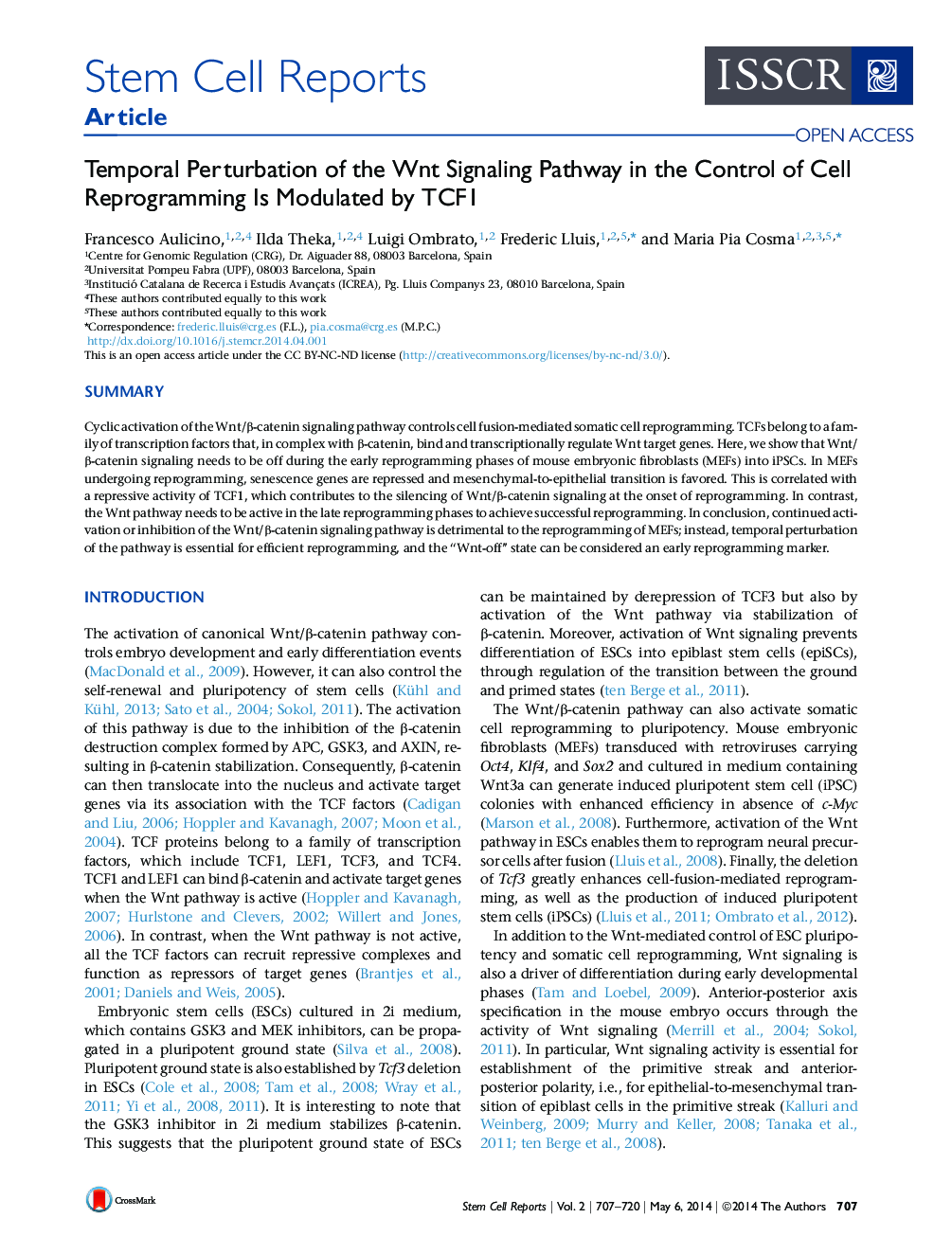| کد مقاله | کد نشریه | سال انتشار | مقاله انگلیسی | نسخه تمام متن |
|---|---|---|---|---|
| 2093366 | 1081955 | 2014 | 14 صفحه PDF | دانلود رایگان |

• Time-dependent perturbation of Wnt pathway enhances reprogramming
• TCF1 acts as repressor in cells undergoing reprogramming
• TCF1 represses senescence genes and promotes MET
• “Wnt-off” state is an early reprogramming marker
SummaryCyclic activation of the Wnt/β-catenin signaling pathway controls cell fusion-mediated somatic cell reprogramming. TCFs belong to a family of transcription factors that, in complex with β-catenin, bind and transcriptionally regulate Wnt target genes. Here, we show that Wnt/β-catenin signaling needs to be off during the early reprogramming phases of mouse embryonic fibroblasts (MEFs) into iPSCs. In MEFs undergoing reprogramming, senescence genes are repressed and mesenchymal-to-epithelial transition is favored. This is correlated with a repressive activity of TCF1, which contributes to the silencing of Wnt/β-catenin signaling at the onset of reprogramming. In contrast, the Wnt pathway needs to be active in the late reprogramming phases to achieve successful reprogramming. In conclusion, continued activation or inhibition of the Wnt/β-catenin signaling pathway is detrimental to the reprogramming of MEFs; instead, temporal perturbation of the pathway is essential for efficient reprogramming, and the “Wnt-off” state can be considered an early reprogramming marker.
Graphical AbstractFigure optionsDownload as PowerPoint slide
Journal: - Volume 2, Issue 5, 6 May 2014, Pages 707–720